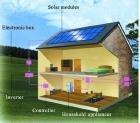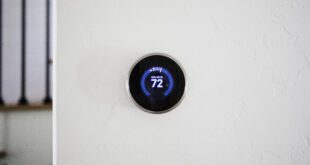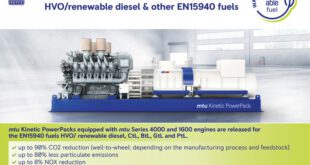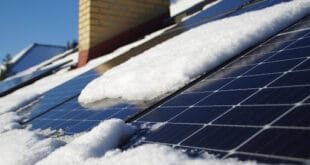
The premise behind the zero energy homes is that you have a house that not only generates its own energy through renewable energy sources but also has less of an initial carbon impact with the materials that are used to build the house. The theory is that you end up with a carbon neutral home.
Zero energy homes and similar standards such as the Passivhaus or Passive House are not just about reducing the amount of carbon used to build and run the home. The principals behind these types of home show that we can maintain a similar standard of living whilst reducing our environmental impact thus ensuring a future for ourselves on this planet.
Are energy efficient homes just for greenies?
All this talk of efficiency, alternative energy and carbon may turn a lot of people off and only appeal to the interest of…well essentially preaching to the converted. The fact is that well designed, highly insulated homes benefit the majority of people. It means the occupants of such a house would spend much less of their income on bills. In a typical home if it gets really cold and you cannot afford to switch on the heating then your home and its occupants are going to get cold. In a Passivhaus without any heating the temperature will never go below 16°C even in the coldest of winter months.
For modern families to adopt what are generally deemed technologies for the middle class environmentalist it has to happen automatically. For example most homeowners are not going to go out and super insulate their homes, buy solar panels for their roofs, low water usage fixtures, wood burners or other green technologies. If however homes were built to these standards then families would automatically benefit when they moved in.
Did you know that space heating costs for a Passivhaus standard home can be around $15 a year? Houses built to this standard are also designed to reduce the cooling demand during summer, with super levels of insulation, ventilation and shading from the overhead summer sun these types of home remain naturally cooler.
Zero energy homes vs Super insulated Passivhaus
One of the problems with alternative technologies is that they are not as yet as competitive as fossil fuels. Of course fossil fuel energy production and heating technologies have had the advantage of many decades of development and a market for mass production. It makes sense to reduce the homes energy demand, particularly for heating so that less money needs to be spent on technologies to power and heat the home.
Energy Efficiency before Energy Production
Green designed homes are generally more expensive then their contemporary counterparts. If we are to get the public to accept zero or lower energy homes they are going to have to be competitively priced and offer clear easy to understand cost reduction benefits. There are privately funded schemes such as those for free solar panels in the UK that would negate the initial cost of installing solar for both the homeowners and the builder. If consumers think that they will have to change their lifestyle they are not going to buy a greener home.
One of the problems for the industry is that only switched on home buyers are going to be able to appreciate the benefits of a low carbon home. As with many purchases consumers and builders tend to go for the cheapest short term option, consumers worry about costs and builders about profits. Without a clear compromise these beneficial types of home are not going to make a significant enough impact so we will end up building outdated housing stock that is not going to be replaced for decades to come.
Written by Allan Burns from Free Solar Panels UK, a green advocate who offers advice on how to save money on your energy bills.
 Alternative Energy HQ solar power for homes, wind energy, and bio fuel issues
Alternative Energy HQ solar power for homes, wind energy, and bio fuel issues






